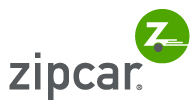Zipcar Drives Transportation Change in Baltimore
 |
BALTIMORE--July 18, 2011: Zipcar, Inc. , the world's leading car-sharing network, the City of Baltimore and the Parking Authority of Baltimore City celebrate Zipcar's one-year anniversary of operations in Baltimore with the release of survey data from Zipcar's Baltimore-area members documenting Zipcar's impact on the city's transportation landscape. The data reveals that during the past year, Zipcar members in Baltimore, whom the company calls "Zipsters," own fewer cars, drive less and use public transportation more often than they did prior to joining.
Zipcar's expansion to Baltimore was made possible by an innovative partnership with the City and the Parking Authority of Baltimore City as part of a plan to reduce parking demand, congestion, and emissions, while offering citizens affordable personal transportation. The survey data indicate that the service is making progress toward all those goals.
Key findings from the survey include:
- Eighteen percent of respondents have sold their vehicles since joining Zipcar, and 46 percent stated that they have avoided buying a car.
- Seventy-two percent said being a Zipcar member made it less likely they would buy or lease a car in the future, which could result in fewer personally owned vehicles across the city competing for parking spots.
- The number of Zipsters taking five or more car trips in a month has decreased from 38 percent, to 12 percent, and the number of respondents driving fewer than 500 miles per month has increased by more than 17 percent.
- Fourteen percent bike more, 21 percent walk more, and 11 percent use public transportation more. More than a third of respondents say they use public transit to get to a Zipcar.
The findings indicate three strong trends: Baltimore area Zipsters are driving less, reducing vehicle ownership and increasing uses of other modes, leading City of Baltimore Mayor Stephanie Rawlings-Blake to believe that the expansion of Zipcar in Baltimore has resulted in fewer car owners overall and sees the partnership as a successful tool for managing parking demand.
"We've shown that by working together, the city and Zipcar can make a positive impact on city life for our residents and businesses," said Rawlings-Blake. "Fewer cars on the streets means less competition for limited parking spaces. It means fewer vehicles in rush hour traffic. And it means less pollution in the air. But best of all, this program offers affordable and convenient transportation at a time when many people in the city are looking for cost-saving options."
"Baltimore's commitment to making car sharing thrive has been evident every step of the way," said Mark Norman, president and COO of Zipcar. "By being a customer, providing highly visible and convenient parking spots, and by evangelizing the service, the city has accelerated the program, bringing more Zipcars to more people. We will continue to work closely with Mayor Rawlings-Blake to make the service even better in the coming year."
Since the program launched in June 2010, Zipcar has expanded to 100 vehicles now parked in convenient locations across the city. To support the City of Baltimore's efforts to increase affordable transportation for all residents, Zipcar also agreed to place vehicles in specific neighborhoods of low-vehicle ownership within 18 months after its official launch in the city. Working with the Parking Authority of Baltimore City and neighborhood associations, Zipcar was able to exceed this commitment within just five months of arriving in Baltimore.


